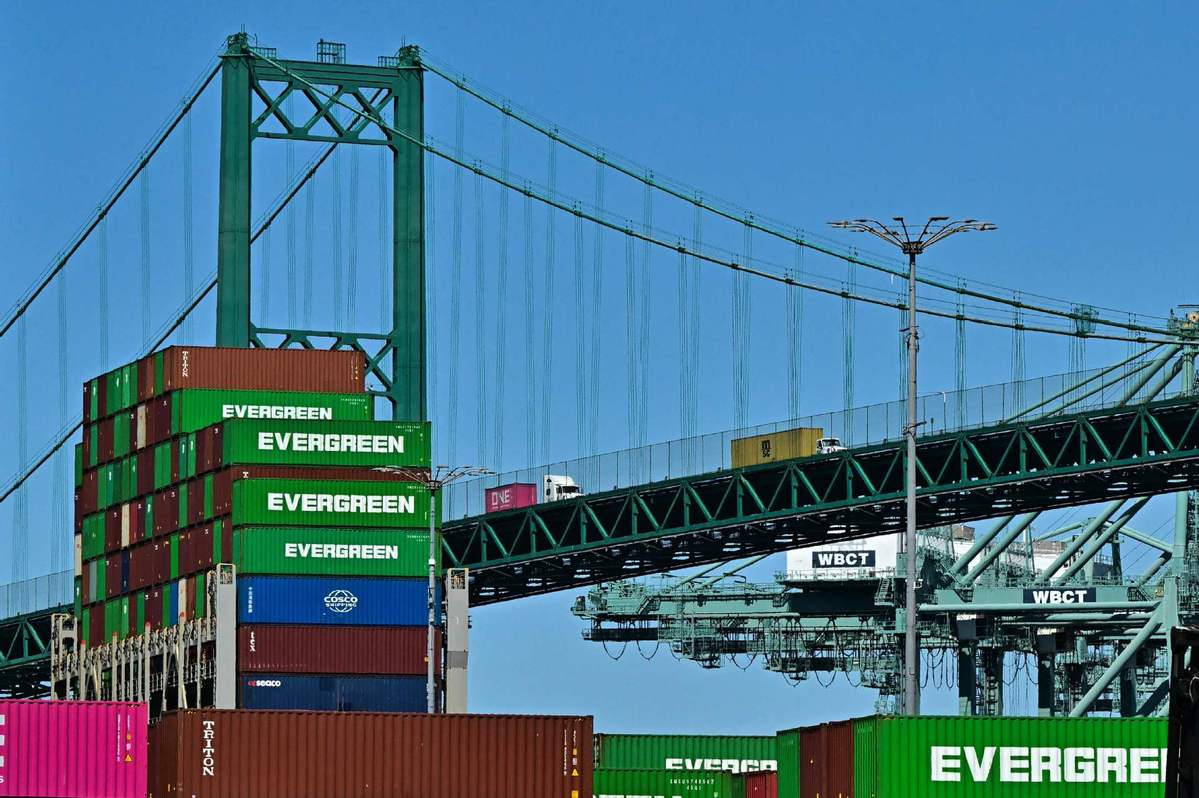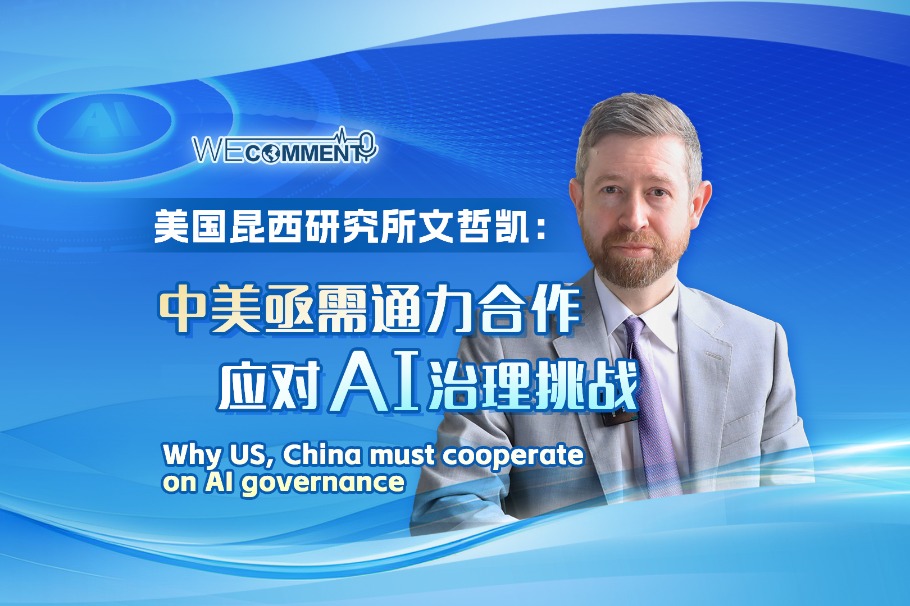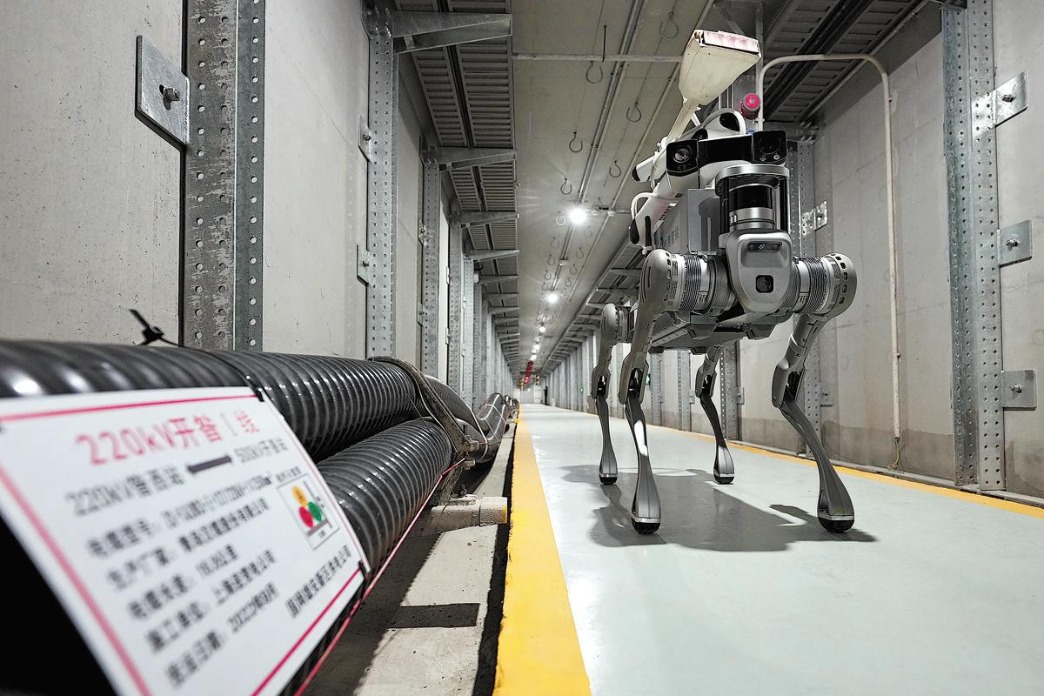Trump announces sweeping tariffs on trade partners, including China
By YIFAN XU in Washington | chinadaily.com.cn | Updated: 2025-04-03 09:12

US President Donald Trump unveiled a new tariff policy on Wednesday afternoon to impose new tariffs on nearly all US trading partners, including a 34 percent levy on China.
Trump, speaking from the White House Rose Garden, announced an "economic emergency", introducing a 10 percent "baseline" tariff on imported goods and additional punitive tariffs targeting around 60 countries with what he called "unfair trade practices".
Trump said the tariff on all countries, except Canada and Mexico, will take effect on Saturday. He also announced that there would be "individualized" tariffs for countries that have the largest trade deficits with the United States, which would go into effect on April 9.
"For decades, our country has been looted, pillaged, raped and plundered by nations near and far, both friend and foe alike," Trump said, claiming that the tariffs were designed to boost domestic manufacturing
During his remarks, Trump displayed a chart detailing various US trading partners, highlighting what he claimed were the tariffs those countries imposed on the United States. He then proposed that the US would apply reciprocal tariffs at half the rate charged by each nation, including China's alleged 67 percent effective tariff rate when factoring in "currency manipulation and trade barriers".
China, a central focus, was on the top of the chart, followed by the European Union.
"[On China], we're going to be charging a discounted reciprocal tariff of 34 percent," said Trump. Before today's announcement, Trump had already imposed 10 percent tariffs on Chinese goods in two separate rounds, one in February and another in March.
Later, White House documents detailed specific rates: China faces a 54 percent total tariff, with a new 34 percent added to the existing 20 percent, as confirmed by Treasury Secretary Scott Bessent. Other rates include the EU at 20 percent, Vietnam at 46 percent, Japan at 24 percent, Korea at 25 percent, India at 26 percent, Cambodia at 49 percent.
Trump said that the tariffs would address years of "unfair" trade practices, during which he claimed other countries had been exploiting the US.
US stock markets quickly erased earlier gains following Trump's remarks. In after-hours trading, S&P 500 futures dropped by 1.5 percent.
Numerous US lawmakers criticized Trump's tariff hike. Senator Tim Kaine, a Virginia Democrat, said that "many of my Republican colleagues in Congress have already expressed concerns about these tariffs". Kaine authored a resolution to block Trump's tariffs on Canadian imports, which passed the Senate on Wednesday.
"His [Trump's] half-baked trade war will only raise prices for consumers," said Senator Peter Welch, a Vermont Democrat.
Senator Susan Collins, a Maine Republican, said: "If these tariffs go into effect, it will be so harmful. And as price hikes always do, they will hurt those the most who can afford them the least."
Speaking shortly after Trump, Canadian Prime Minister Mark Carney said the reciprocal tariffs announced by the US President will "fundamentally change the international trading system". He also said Canada would fight American tariffs with countermeasures, although his country and Mexico were not on the list of new tariffs. Trump described the exclusion as an effort to stop illegal immigration and drug smuggling.
Hours before Trump's announcement, Stephane Dujarric, spokesperson for the United Nations (UN), told China Daily at Wednesday's noon briefing that the UN has "expressed concern about what we've seen", which is "a rise in economic protectionism" and is concerned "about the impact it could have on the global economy".
Dujarric told the press conference at the UN headquarters in New York last week that the UN consistently encourages member states to settle trade disputes through constructive dialogue or established mechanisms.
"I think we've spoken about the issue of tariffs and our position remains the same. We live in a very much global interlinked economy. It is important that member states resolve their trade issues through constructive engagement or through existing architecture, whether it's within the UN or not. And we've seen other countries put up tariffs. These are things that can have very severe impacts on the global economy," he said.
Ursula von der Leyen, the president of the European Commission, said on Tuesday that Europe has a plan to retaliate if Trump imposes widespread tariffs. "Europe did not start this confrontation," she said to EU lawmakers.
"There's only one conclusion: Trump is convinced that he's smarter than the many economists and business leaders who have urged him not to raise tariffs and risk a trade war," Anthony Moretti, an associate professor in the Communication and Organizational Leadership Department at Robert Morris University in Pennsylvania, told the China Daily.
"A trade war would harm Americans and people from all over the world, and it will damage bilateral relations," he said.
Trump signed another executive order effective May 2 to remove tariff exemptions for Chinese imports valued at $800 or less and intends to apply the same measure to other countries once the federal government confirms it has the necessary staffing and resources in place. The "de minimis" exemption was helpful to popular e-commerce websites Temu and Shein.
Moretti said that Trump "slammed" China twice on Wednesday. "The 34 percent tariffs will likely draw the bigger headlines, and any response from China will only magnify what he said. But the president also eliminated the ‘de minimis' rule that eliminated tariffs on imported items of less than $800," he said. "In effect, what the president has decided is that everything entering the US from China must include a tariff.
"And that means higher prices whether the item is inexpensive or costly. Poorer Americans will especially feel the pain of higher prices because they have fewer dollars to spend," Moretti added.
Minlu Zhang in New York contributed to this story.
























